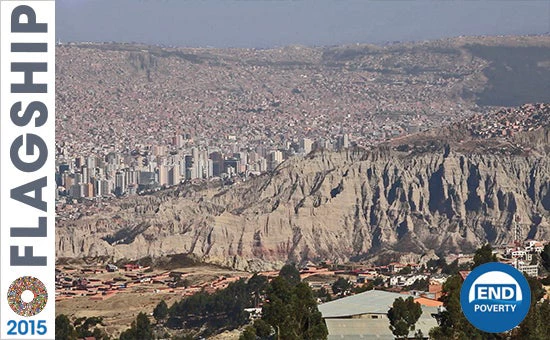
Just a few months ago, the World Economic Forum’s 10th Global Risk Report ranked water crises as the top global risk in terms of impact, more than the spread of infectious diseases, weapons of mass destruction or interstate conflict. With such global implications, we face a considerable challenge to develop the appropriate response. But we have also long grappled with a simple truth: water management is a complex web of local situations and issues, dictated by hydro-climatic conditions, spatial and demographic patterns, complex political economy dynamics, and technical considerations.
One increasingly pressing issue is the widening gap between the supply of water resources and the demand for water services in rapidly growing urban areas. This is exacerbated by dwindling resources in the face of climate vulnerability, and a legacy of poor governance and wasteful uses. This gap is most extreme in arid areas, which have few contingency options, and are left with few, if any, fallback options in case of further strain on the system.
The Middle East and North Africa region is already a water stressed region that will experience additional pressure from reduced water availability and reliability due to climate change on top of an unabated increase in demand and resource degradation. The Municipality of Sana’a is over-pumping/over-using aquifers. According to the municipality, only 48% of its 2.2 million inhabitants receive piped water, whereas remaining residents receive water through tankers – water which is 5 times more expensive, sometimes 10 times more in periods of crisis.
It is for these very reasons, among others, that this Thursday we will host a number of leading voices in the sector, including city and utility managers, to share their experiences and solutions for addressing water scarcity challenges with a view of the social, economic, and political implications. The panelists have worked on some of the most innovative management approaches and technologies now being deployed in the sector and will discuss how these can be used more widely to enhance water security globally. We can all benefit from the panelists’ hands-on experience, where cities and utilities have tested integrated ways to manage urban water scarcity, and whether those efforts appear to be working or not.
In the Southwest United States, cities faced with an alarming decrease in aquifer levels embarked on a decades-long comprehensive strategy to secure their water future. Las Vegas proceeded to federate local utilities under a single authority to leverage their bargaining power and secure additional water credits through innovative market and regulatory mechanisms. Tucson is recharging its aquifers with its unused Colorado River allocation, while also developing water reclamation to materially offset municipal non-drinking uses. Both cities, as well as drought-stricken urban areas in California, also developed aggressive demand-management actions, such as targeted data-based awareness-raising, changes in land use planning, or stringently enforced water-consumption regulations, with many lessons to be learned from a decade of trial and error.
Southern Europe consistently deals with extreme water shortages. Malta for example has achieved notable performance in areas such as water leakage reduction and wastewater treatment and reuse, resulting in a drastic reduction in both water losses and the volume of water needed to be produced through desalination to be able to meet demand. Cyprus dealt with a major drought in the mid-2000s, and subsequently transitioned from intermittent supply and deteriorating assets to a modern 24/7 service by aggressively targeting non-revenue water and developing infrastructure through public-private partnerships.
More recently, some major water crises have figured prominently in the news. Systematic water rationing in California, political fallout from the expensive Adelaide desalination Build-Operate-Transfer (BOT) project, and reservoir levels breaching critical thresholds in Sao Paolo with no relief in sight, to name a few.
These crises portend great difficulty achieving water security for all, yet underlie the urgency to act now. Thursday’s event is precisely about sharing experiences, learning from each other, debating the solutions, in order to offer a global stage to local solutions, and develop a strong global network around extreme water scarcity. We hope you can join us, either in Washington, D.C. or online.
Related links
World Bank Live Spring Meetings 2015 Event: Water Security for All in a World of Scarcity
Follow the event with #WaterSec4all
World Economic Forum Global Risks Report 2015



Join the Conversation